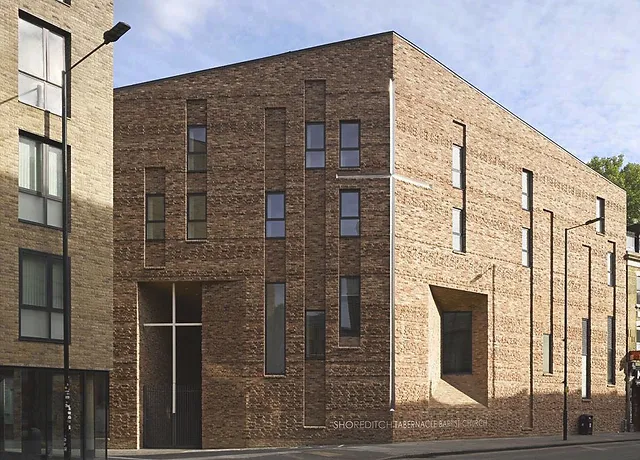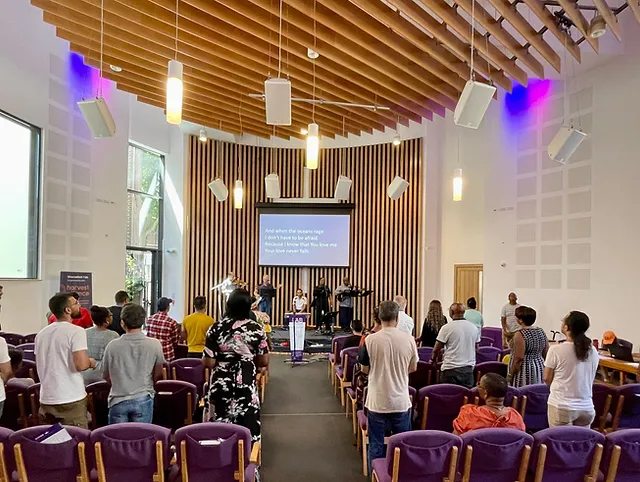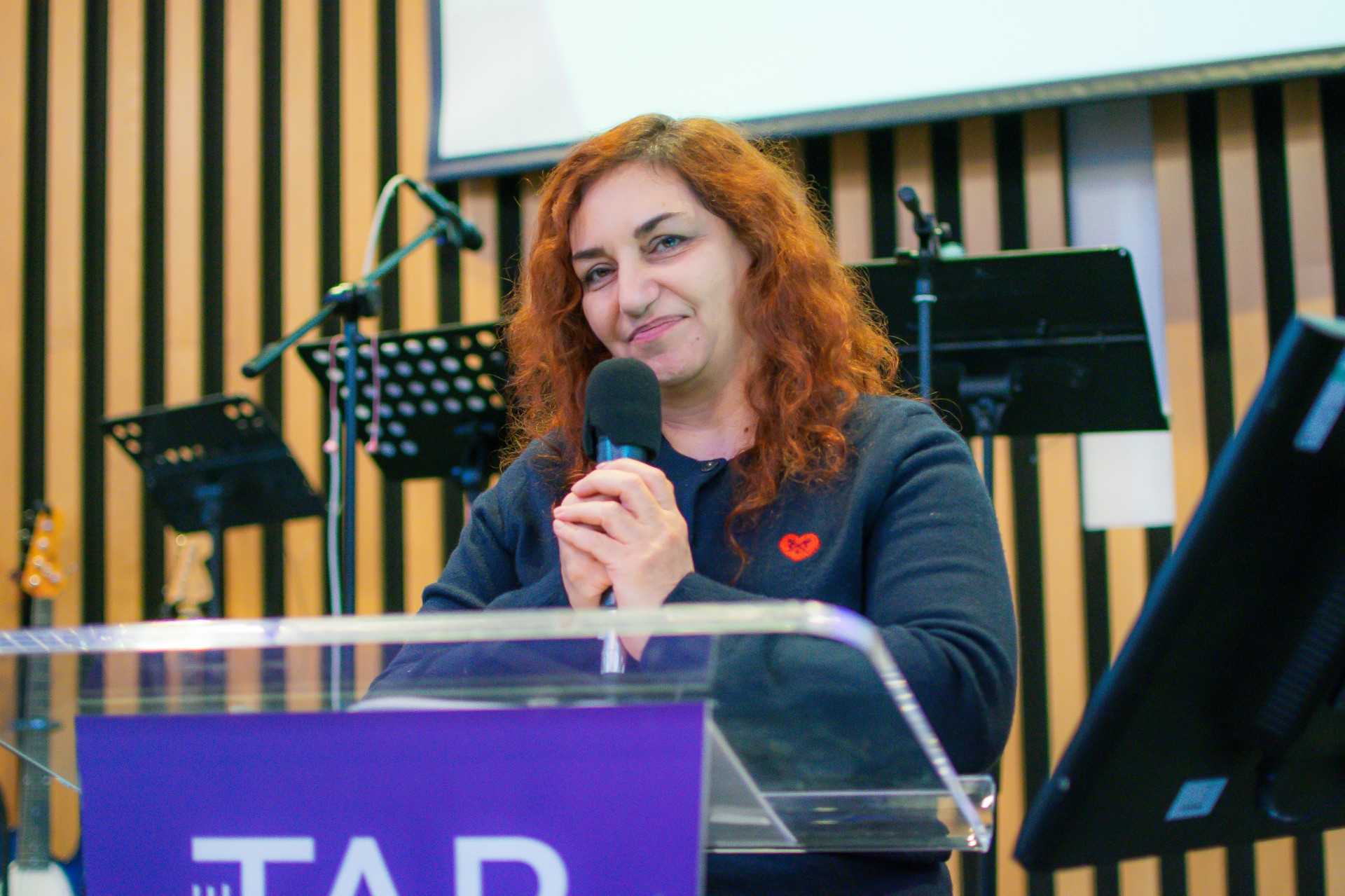
Discipleship and the joy of welcoming refugees
How Shoreditch Tab Church is responding to the refugees in its midst. An interview with Baptist minister Georgina Stride
He has given us a heart to love and care for these lovely, troubled people,” says Baptist minister Georgina Stride, “and over time we have seen their slow but healthy integration into the life of our church.”
 Like several Baptist churches in recent times (and those of other denominations), Shoreditch Tab Church in East London has welcomed a growing contingent of Iranianrefugees and asylum seekers. The church has a long history of helping those in need (‘The gospel of Jesus is central’, noted Ernest Clifford, minister 1929-46, ‘but the care of the poor is essential’) and the Iranians are among the most vulnerable in the community. Ministry among them is complex. They have little, so there are immense practical needs, such as housing. Trauma is common, with many having fallen foul of a hostile regime (and for some – not all – this is due to their Christian faith). There are language barriers and cultural differences, not least in understanding what it means to have Christian faith. Furthermore, earlier this year political tensions around UK churches and their welcome of the stranger were becoming apparent.
Like several Baptist churches in recent times (and those of other denominations), Shoreditch Tab Church in East London has welcomed a growing contingent of Iranianrefugees and asylum seekers. The church has a long history of helping those in need (‘The gospel of Jesus is central’, noted Ernest Clifford, minister 1929-46, ‘but the care of the poor is essential’) and the Iranians are among the most vulnerable in the community. Ministry among them is complex. They have little, so there are immense practical needs, such as housing. Trauma is common, with many having fallen foul of a hostile regime (and for some – not all – this is due to their Christian faith). There are language barriers and cultural differences, not least in understanding what it means to have Christian faith. Furthermore, earlier this year political tensions around UK churches and their welcome of the stranger were becoming apparent.
Given such factors, Shoreditch knew it needed additional help to live out the call it was sensing. Here it was blessed to encounter Khatereh Rouin, an Iranian woman whose opposition to her country’s regime led to her fleeing. Khatereh had subsequently met Jesus in a dream, and has become the first ordained female pastor with theIranian Christian Fellowship. With the support of Home Mission, the Tab Centre now employs Khatereh as an assistant pastor, and she has begun ministerial training at Spurgeon’s College.

“Having Khatereh here has made such a difference,” says Georgina. “We love our Iranian neighbours so much, and Khatereh has taken our understanding of them – and them us – to the next level.
“Many are interested in the Christian faith because of the welcome they receive, but concepts such as forgiveness can be hard to grasp because it’s not what they’re used to. Some may believe with their heads, but not their hearts”, adds Georgina. So in addition to meeting practical needs, the church has therefore sought to intentionallydisciple all who want to know more.
This has involved Khatereh leading Bible studies, courses on prayer and other spiritual disciplines, a service in Farsi on Fridays, and intensive baptism classes. The church launched a weekly ‘family night’ in 2024 to transition from home groups and encourage more unity in the fellowship. The overall vision is to make disciples, and the evening sees a sizeable percentage of the congregation share a meal and a time of worship before breaking into smaller groups to study the Bible.
“It certainly hasn’t been plain sailing”, says Georgina, “more of a mixed bag”. The church is aware of

the possibility of those whose motives are different, and has put in place very good criteria and processes for taking people through baptism. But amid the challenges
there have been some wonderful breakthroughs, and many of the Iranians are finding a place of sanctuary, hope and purpose. They make up around 50 to 60 per cent of the 80 strong congregation, and many now serve in some way, inareas such as hospitality, welcoming, security, Sunday school, tech and worship.
Georgina, who herself found faith as a teenager, says: “We know what it’s like to come from a non-Christian background. We want to teach our people to do life withJesus, to teach them about God’s love and then how to apply it in their lives.
“We want our people to be equipped, to see them thriving, and hopefully become committed members of the church - becoming true disciples is what it’s all about. At times we’re like a New Testament church with the growth, and the challenges that brought. It’s happening – and it’s the Lord’s work.”

Images | Shoreditch Tab Church
Click here to download a pdf version of this article